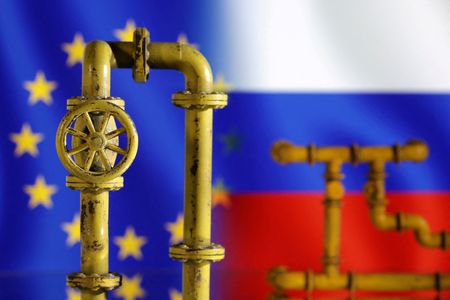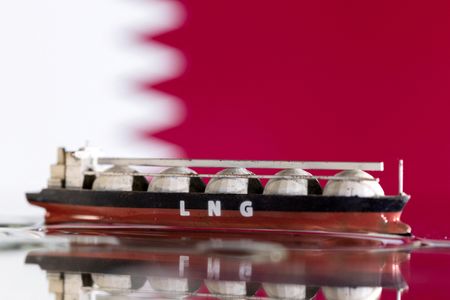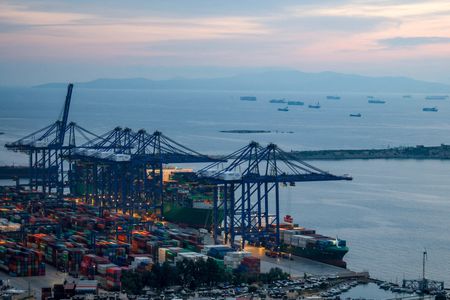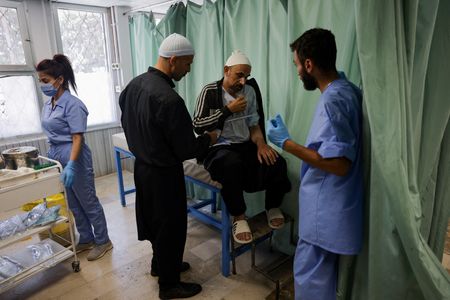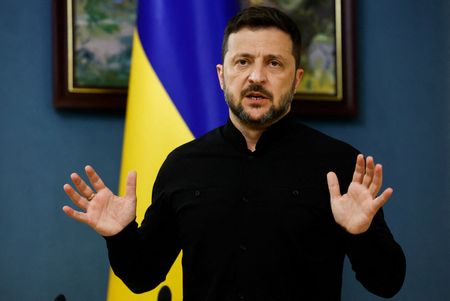By Kate Abnett
BRUSSELS (Reuters) -The European Parliament is considering proposals to speed up the EU’s phase out Russian gas by one year, to January 2027, documents seen by Reuters showed, as officials in Brussels prepare to negotiate the legally-binding ban.
European Union countries and lawmakers are preparing to negotiate the EU’s plan to ban imports of Russian gas – with the starting point a legal proposal the European Commission made last month to phase out all Russian gas imports by January 1, 2028.
The Parliament’s lead lawmakers on the Russian gas ban have each proposed that this deadline is moved forward to January 1, 2027, documents detailing their amendments to the Commission proposal showed.
The proposals are by EU lawmakers Inese Vaidere from the centre-right European People’s Party – the biggest lawmaker group in the Parliament – and Ville Niinisto from the Greens.
Diplomats from EU countries said it was unlikely governments would agree to bring forward the Russian gas ban by a year – but that EU lawmakers could use this demand as leverage to secure other changes in the negotiations.
For example, Vaidere has also proposed a requirement for governments to impose penalties on companies that violate the ban, potentially including by revoking licences for energy trading. Niinisto wants a full ban on Russian oil imports from January 1 2027, which the European Commission did not propose.
The European Parliament will vote in the autumn to confirm its position for negotiations with EU countries on the ban.
The final measures need approval from the Parliament and a qualified majority of EU countries – meaning that they cannot be blocked by EU members Hungary and Slovakia, which still import Russian gas via pipeline and have opposed the EU plans.
The EU vowed to end decades-old energy relations with Europe’s former top gas supplier after Moscow’s 2022 invasion of Ukraine.
Under the proposed ban, the EU would start phasing out Russian gas imports under new and short-term contracts earlier, from January 2026.
About 19% of Europe’s gas came from Russia last year, via the TurkStream pipeline and LNG shipments. This share is expected to fall to 13% in 2025, down from roughly 45% before 2022.
(Reporting by Kate AbnettEditing by Mark Potter)

